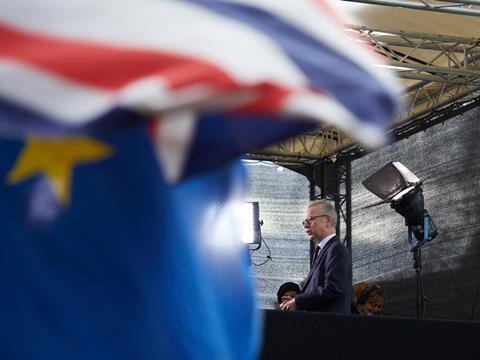
Businesses will pay the full cost of recycling or disposing of their packaging waste, under a major new UK Government strategy unveiled by the Environment Secretary today.
The move will overhaul England’s waste system, putting a legal onus on those responsible for producing damaging waste to take greater responsibility and foot the bill. The announcement forms part of the government’s new Resources and Waste Strategy. Meanwhile, the new waste policy will attempt to simplify the existing recycling system, with new plans for a consistent approach to recycling across England. Timings for introduction will be subject to discussions at the Spending Review.
To help further drive up recycling levels, the government plans to introduce a consistent set of recyclable material for collection, subject to consultation. This will be funded by industry through Extended Producer Responsibility, which will see industry pay higher fees if their products are harder to reuse, repair or recycle and will encourage sustainable design, subject to consultation. EPR for packaging will raise between £0.5 billion and £1 billion a year for recycling and disposal.
The move builds on the UK government's autumn budget, which announced a tax on plastic packaging which does not meet a minimum threshold of at least 30% recycled content, subject to consultation, from April 2022. This will address the current issue of it often being cheaper to use new, non-recycled plastic material despite its greater environmental impact.
The Resources and Waste Strategy sets out how government will:
- Ensure producers pay the full net costs of disposal or recycling of packaging they place on the market by extending producer responsibility – up from just 10% now.
- Review our producer responsibility schemes for items that can be harder or costly to recycle including cars, electrical goods, batteries and explore extending it to textiles, fishing gear, vehicle tyres, certain materials from construction and demolition, and bulky waste such as mattresses, furniture and carpets.
- Introduce a consistent set of recyclable materials collected from all households and businesses, and consistent labelling on packaging so consumers know what they can recycle, to drive-up recycling rates.
- Ensure weekly collections of food waste, which is often smelly and unpleasant, for every household – restoring weekly collections in some local authorities. This will be subject to consultation which will also consider free garden waste collections for households with gardens, to reduce greenhouse gas emissions from landfill
- Introduce a deposit return scheme, subject to consultation, to increase the recycling of single-use drinks containers including bottles, cans, and disposable cups filled at the point of sale.
- Explore mandatory guarantees and extended warranties on products, to encourage manufacturers to design products that last longer and drive up the levels of repair and re-use.
- Introduce annual reporting of food surplus and waste by food businesses. Should progress be insufficient, we will consult on introducing mandatory targets for food waste prevention.
- Clamp-down on illegal movements of waste at home and abroad by introducing compulsory electronic tracking of waste, and tougher penalties for rogue waste crime operators if they mislabel their waste to dodge tax rules.
The strategy sits alongside government’s 25 Year Environment Plan, the recently published Bioeconomy Strategy, and Clean Growth Strategy.
INCPEN's Paul Vanston greeted the announcement with a cautious welcome. “Much of the ‘hard yards’ in delivering the Strategy’s aims is scheduled to take place in early 2019 with the release of four major consultations: implementation of a deposit return system; packaging system reforms and packaging targets for 2020 onwards; consistency of councils’ recycling services to customers; and HM Treasury’s consultation on a tax on packaging items with less than 30% recycled content," he said.
“It is essential the collaborative efforts of 2018 continue with even greater industriousness across the packaging supply chain and with our partners in councils, with the resources management sector, and with recyclers and reprocessors. With an anticipated injection of up to £1 billion from producers, it’s vital this money is seen as additional, and turbo boosts recycling rates.
“That means the resources industry can’t afford for either HM Treasury or councils’ finance departments to see producer funding as an opportunity to reduce existing council recycling and waste budgets. The net effect of such detrimental moves would be to stifle the very performance uplifts in recycling and resource efficiency Defra’s Strategy seeks to achieve."
In the view of Packaging Europe, the move to bring consistency to the UK's waste management services is welcome and long overdue. However, an important caveat to the policy proposal is that the UK government would be wise to pay close attention to work at both cross-industry and EU level on harmonising design for recyclability. Organisations such as CEFLEX are already making impressive progress in mapping out technological and business models for circularity in plastic packaging, while continent-wide standards are sure to emerge under the auspices of the EU's strategies. The government should be careful to learn from existing projects and avoid allocating resources to replicating work that is already be carried out. It should also ensure that the UK's waste collection and recycling infrastructure reforms coherently in parallel with those of EU member states. Whether Brexit takes a highly damaging 'no deal' form or the UK retains a close relationship with the Single Market, it benefits no one to create unnecessary complexity and unintended trade barriers around the highly internationalised consumer packaged goods value chain.













